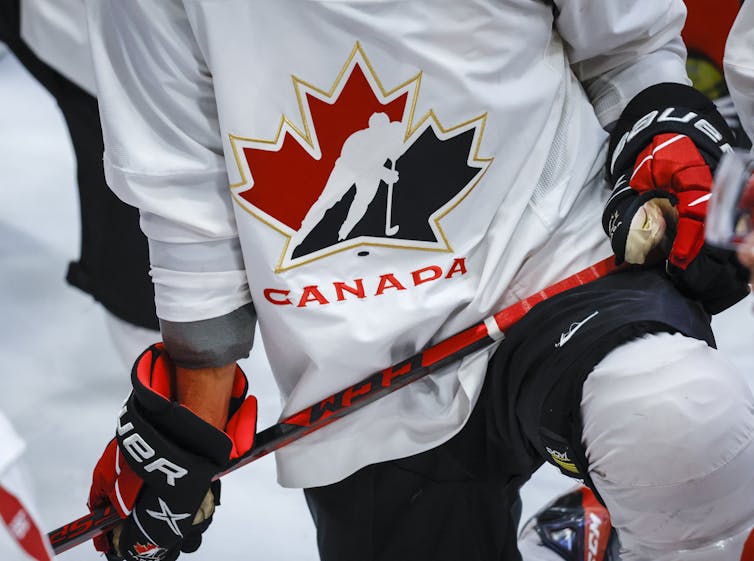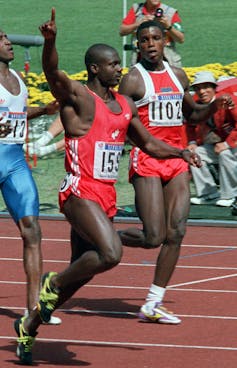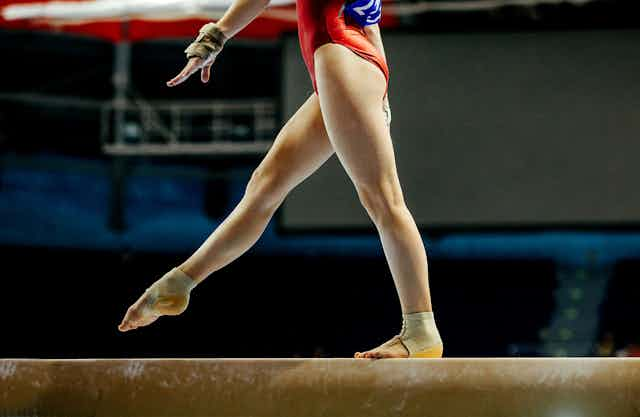Sport in Canada is at a crossroads. The ongoing scandal with Hockey Canada highlights the need to take broader societal action to create a safer sport culture. The crisis in sport is rooted in issues of power and control that remain unchecked. There is also a lack of awareness at the least, and neglect or complicity at the worst.
In 2022, it came to light that Hockey Canada used internal funds to settle sexual assault allegations. Criticism of how Hockey Canada handled allegations of abuse have prompted an overhaul of the governing body’s leadership, and highlighted the sport system’s failure to foster a safe culture.
This situation demonstrated some of the most insidious aspects of abuse in sport. But Hockey Canada is not alone in the reckoning about ongoing abuse cultures in sport.
Across Canadian sport there are more stories surfacing about abuse and maltreatment. In the past few months alone, hundreds of athletes have come forward to publicly report issues of physical, sexual and psychological abuse, including more than 500 current and retired gymnasts.

Read more: Abuse is widely accepted as part of organized sports culture but it should not be tolerated
Yet the government refuses to launch a national inquiry. Rather, it has referred the issue to Parliament’s Status of Women Committee. The implication is that abuse and maltreatment are only a women’s issue.
There have been calls for an independent inquiry into safe sport from scholars, athletes, the former Canadian Federal Sport Minister and the Canadian Centre for Ethics in Sport (CCES).
A large majority of the cases of abuse and maltreatment are coming from the stories of young women, yet the government appears to be ignoring those testimonials.
If we compare this situation to past events in Canada, we see some glaring differences deeply rooted in the gender and racial inequalities in this country.
The Dubin Inquiry
The 1989 Dubin Inquiry involved a Canadian government investigation into the use of performance enhancing drugs and banned practices. It was launched after Canadian sprinter Ben Johnson, who had won the 100m sprint final at the 1988 Seoul Olympic Games, was disqualified for failing a drug test.
The Dubin Inquiry changed the landscape of drug testing in Canada and led to the development of CCES. The events that led to the Dubin Inquiry involved far fewer athletes in comparison to the current scandals. Yet, they prompted a Royal Commission of Inquiry.

What is notable is the individual athlete at the heart of the inquiry. The international and national shame from the actions of one Black man prompted the federal government to launch a national inquiry. By all accounts, Johnson was villainized for his doping, actions that were rampant on the international athletics scene at the time.
When Johnson was winning, he was hailed as a great Canadian gold medalist, but when he was disgraced by doping, he was stripped of his Canadian identity.
Some felt that Johnson (and many other athletes) were used as pawns by the major players, including the federal government. Someone needed to take the blame for the “moral crisis in sport,” and no one was better placed to do so than an athlete.
Today’s moral crisis in sport
In Canadian sport’s current moral crisis, the majority of the victims are young women who have suffered in silence for years. Abuse in sport can be perpetrated at all levels against anyone of any age. However, research has demonstrated that it is more prevalent for young women with male coaches in positions of power.
Coaching remains dominated by men. The Coaching Association of Canada reported that only 34 per cent of coaches are women while 66 per cent are men. This means that most young girls are coached by men in positions of power.
Global Athlete, an organization that campaigns for athletes’ rights, has been helping to mobilize thousands of athletes across 15 sports to call on the Canadian government to address the crisis of abuse.
Government actions to date have been to launch the House of Common’s Standing Committee on the Status of Women study into physical and emotional abuse in sport, and to create Canada’s first Office of the Sport Integrity Commissioner (OSIC).
Both approaches are a far cry from an independent inquiry. Essentially, the government is investigating itself and allowing sport organizations to be self-regulating — clearly an approach that has not been working.

Gymnastics Canada
In January 2023, MPs questioned Gymnastics Canada CEO, Ian Moss, about the organizations handling of athlete complaints against a high level male coach. Moss’s responses to their failure to investigate highlight the organizations inability to self-regulate and unwillingness to be accountable for the history of abuse in their sport.
The recent McLaren report was an attempt by Gymnastics Canada to understand the situation in the sport. The report offers detailed accounts of abuse and maltreatment from those who remain in the gymnastics community. But it failed to engage survivors forced out of the system and missed the mark on a trauma-informed approach.
It’s yet another example of failing to engage in a proper athlete-centred, survivor-informed, independent inquiry that would hold the organization accountable for its culture of abuse.
While some have argued that a restorative justice approach is needed for culture change, such an approach will not hold organizations and individuals accountable for their role in silencing victims and failing to protect young athletes.
Initiating a national inquiry will send a message to every child, youth and elite athlete — particularly young women — that they are worthy of protection. Prevention is imperative and athletes must no longer be forced into silence. The outcome of a national inquiry could set a benchmark for the rest of the world, just as the Dubin Inquiry did with doping.

